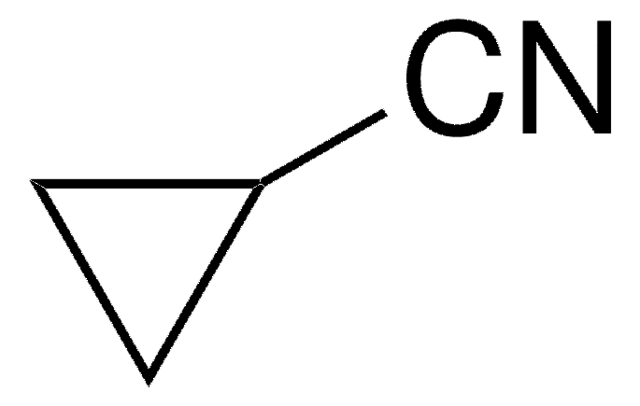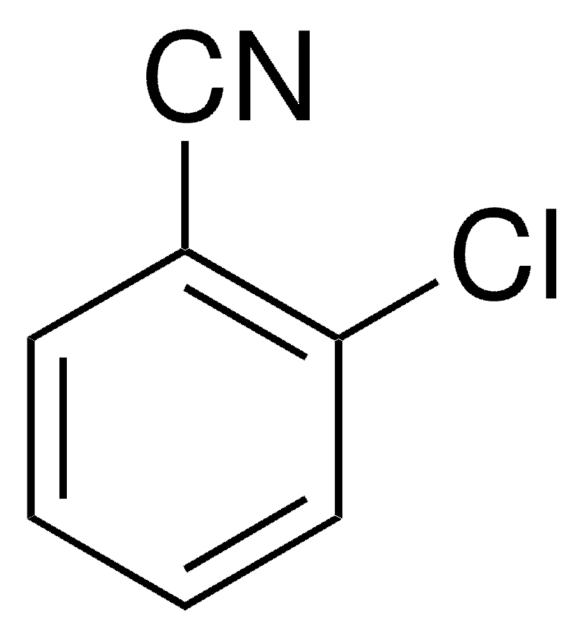366471
Cyclopentanecarbonitrile
98%
Synonym(s):
Cyanocyclopentane, Cyclopentyl cyanide
About This Item
Recommended Products
Assay
98%
form
liquid
refractive index
n20/D 1.441 (lit.)
bp
67-68 °C/10 mmHg (lit.)
mp
−76 °C (lit.)
density
0.912 g/mL at 25 °C (lit.)
SMILES string
N#CC1CCCC1
InChI
1S/C6H9N/c7-5-6-3-1-2-4-6/h6H,1-4H2
InChI key
SVPZJHKVRMRREG-UHFFFAOYSA-N
Looking for similar products? Visit Product Comparison Guide
General description
Application
Signal Word
Danger
Hazard Statements
Precautionary Statements
Hazard Classifications
Acute Tox. 3 Oral - Eye Irrit. 2 - Flam. Liq. 3 - Skin Irrit. 2 - STOT SE 3
Target Organs
Respiratory system
Storage Class Code
3 - Flammable liquids
WGK
WGK 3
Flash Point(F)
132.8 °F - closed cup
Flash Point(C)
56 °C - closed cup
Personal Protective Equipment
Certificates of Analysis (COA)
Search for Certificates of Analysis (COA) by entering the products Lot/Batch Number. Lot and Batch Numbers can be found on a product’s label following the words ‘Lot’ or ‘Batch’.
Already Own This Product?
Find documentation for the products that you have recently purchased in the Document Library.
Our team of scientists has experience in all areas of research including Life Science, Material Science, Chemical Synthesis, Chromatography, Analytical and many others.
Contact Technical Service










